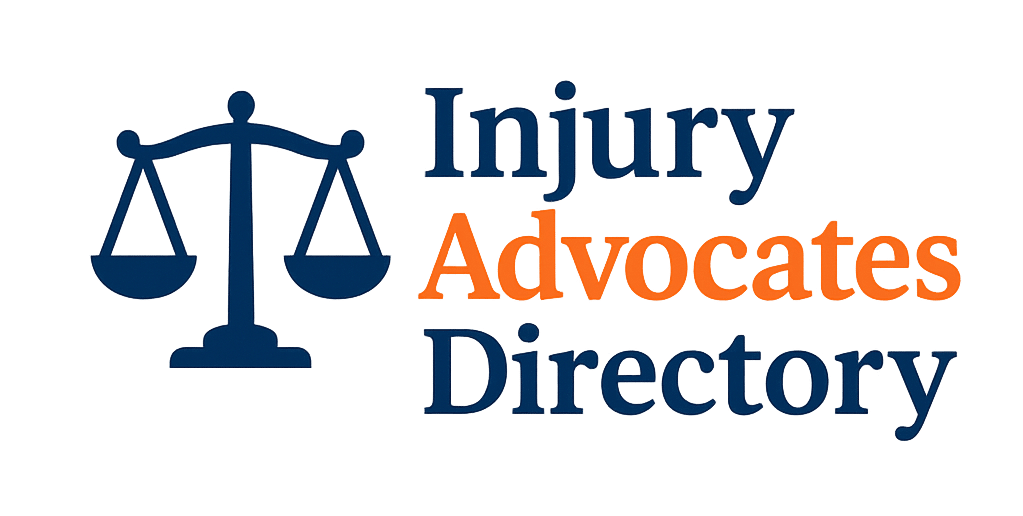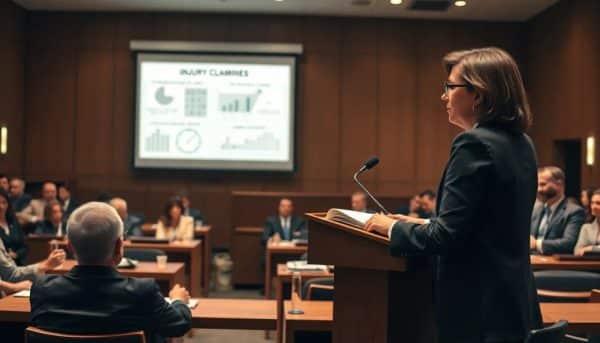Expert witnesses play a pivotal role in personal injury cases. Their specialized knowledge enhances the understanding of complex issues, aiding both the court and juries in making informed decisions. This expertise not only clarifies technical details but also significantly affects the outcomes of legal proceedings.
In particular, the contributions of expert witnesses can determine the success of a personal injury claim. By offering credible testimony, they help establish causation, liability, and the extent of damages, ultimately strengthening the case presented.
What Is The Role Of Expert Witnesses In Personal Injury Cases?
The role of expert witnesses in personal injury cases cannot be overstated. They provide authoritative insights that shed light on technical or medical aspects of a case. These insights are crucial for judges and juries who may lack specific knowledge in certain areas.
Expert witnesses help bridge the gap between complex evidence and the understanding of laypersons involved in the trial. Their testimony often focuses on establishing the link between the accident and the injuries sustained, which is essential for proving liability.
In practical terms, when a case involves intricate medical details or specialized knowledge, expert witnesses can clarify these issues. For instance, a medical expert may explain the long-term impacts of an injury, helping to quantify the damages accurately.
How Expert Testimony Can Support Your Personal Injury Claim
Expert testimony can be a game-changer in personal injury claims, often influencing the outcome significantly. Their credibility helps in establishing a strong narrative around the events leading to the injury.
- Clarification of technical information: Expert witnesses can simplify complex medical terms and procedures into relatable language.
- Support for causation: They can provide scientific evidence linking the accident to the injuries, reinforcing the claims made.
- Establishing damages: Economic analysts, for example, can help quantify future medical expenses, lost wages, and other damages.
Moreover, the testimony from respected professionals can greatly enhance the credibility of the entire claim. This added authority can influence negotiations and settlement discussions, often leading to higher compensation.
What Is An Expert Witness?
An expert witness is a professional who has specialized knowledge, skill, experience, or education beyond that of a layperson. Their insights are used in legal proceedings to help clarify complex issues that require expert understanding.
Expert witnesses are critical in personal injury and medical malpractice cases as they can provide objective assessments based on their expertise. The types of expert witnesses vary widely, from medical professionals to accident reconstructionists.
When selecting an expert witness, it is essential that their qualifications align closely with the specific needs of the case. This ensures that their testimony will hold weight in court and effectively communicate the necessary information.
How Expert Witnesses Strengthen Injury Claims
The involvement of expert witnesses is crucial for the success of personal injury claims. Their insights and testimony can profoundly influence the direction of a case. By providing objective evaluations and clarifying complex issues, they strengthen the arguments made by attorneys.
One of their primary functions is to help establish causation, which is often a contentious point in personal injury cases. When a plaintiff can successfully prove that the defendant's actions directly led to their injuries, the case gains traction.
Additionally, expert witnesses evaluate damages and long-term impacts of injuries. This quantitative analysis can support claims for compensation, making it easier for juries to understand the financial implications of the injuries sustained.
What Types Of Expert Witnesses Are Commonly Used?
In personal injury cases, various types of expert witnesses are commonly utilized. Each type specializes in a different area, providing unique insights that contribute to the overall understanding of the case.
- Medical professionals: Doctors and specialists who can attest to the nature and extent of injuries.
- Accident reconstructionists: Experts who analyze the events leading up to the accident to establish how it occurred.
- Economic analysts: Professionals who assess the financial impact of injuries, including lost wages and future medical expenses.
- Mental health experts: Specialists who evaluate psychological effects and trauma resulting from the injury.
- Legal databases: Resources that provide case studies and precedents to support arguments made in court.
Each of these experts brings a unique perspective that can significantly bolster a personal injury claim. Their collective expertise helps ensure that all facets of the case are adequately addressed.
When Are Expert Witnesses Needed In Personal Injury Cases?
Expert witnesses are typically needed in personal injury cases when specialized knowledge is required to clarify complex issues. This can include instances where medical conditions, psychological impacts, or accident mechanics are under debate.
In cases involving significant injuries or complex medical evidence, expert testimony can be crucial for establishing a clear narrative. For example, in a medical malpractice lawsuit, expert witnesses may be necessary to demonstrate that a healthcare provider deviated from established standards of care.
Additionally, expert witnesses are often called upon during settlement negotiations. Their authoritative opinions can influence the offers made, ensuring that plaintiffs receive fair compensation.
How Do Expert Witnesses Impact Settlement Negotiations?
The presence of an expert witness can greatly influence settlement negotiations in personal injury cases. Their testimony can provide a solid foundation for the claims being made, making it easier to argue for higher compensation.
When a skilled expert testifies, it lends credibility to the case, often prompting defendants to reconsider their stance. A well-documented assessment of damages and causation can lead to more favorable settlement offers.
Moreover, having an expert's opinion can expedite negotiations. It can clarify the issues at hand, potentially reducing the time spent in litigation and leading to quicker resolutions.
Why Are Expert Witnesses Important In Malpractice Claims?
In medical malpractice claims, the role of expert witnesses becomes even more pronounced. They are essential for demonstrating how a medical professional's actions deviated from accepted practices, which is a crucial element in these cases.
Expert testimony in malpractice claims can often determine the outcome of the case. Without it, proving negligence and establishing causation can be exceedingly difficult.
Medical experts can provide insights into the standard of care expected within the medical community, helping to establish whether the defendant acted appropriately given the circumstances.
Questions related to the role of expert witnesses in personal injury cases
What is the role of expert witnesses in personal injury cases?
The role of expert witnesses in personal injury cases is multifaceted. They provide the necessary expertise to explain complex medical or technical issues that may arise during a trial. This helps juries and judges understand vital aspects of the claim, such as the severity of injuries or the nature of the incident.
By offering objective insights, expert witnesses contribute significantly to establishing liability and causation in personal injury claims. Their testimony can clarify how the defendant's actions directly contributed to the plaintiff's injuries.
What are the advantages of expert witnesses?
The advantages of expert witnesses are numerous. They provide clarity on complicated issues that may confuse those without specialized knowledge. This clarity can be crucial in persuading a jury or judge to favor one side of a case.
Additionally, expert testimony can enhance the credibility of the claims being made. When an expert supports a position, it adds weight to the argument and can significantly influence settlement negotiations.
Moreover, their ability to break down complex information allows for a more compelling narrative, which can ultimately lead to better outcomes in court.
What purpose do expert witnesses serve in a medical negligence lawsuit?
In a medical negligence lawsuit, expert witnesses serve to evaluate the standard of care that should have been provided and whether that standard was breached. Their insights are essential in demonstrating how a healthcare provider's actions deviated from accepted practices.
Expert witnesses in these cases articulate the complexities of medical procedures, making it easier for the jury to understand the nuances involved. This understanding is critical in proving that the plaintiff's injuries were a direct result of the negligence displayed by the medical professional.
Furthermore, their testimony can provide a detailed analysis of the long-term effects of the alleged negligence, supporting claims for damages.
How does an expert witness establish their credibility?
An expert witness establishes their credibility through a combination of qualifications, experience, and a clear presentation of their findings. Their educational background, professional experience, and any relevant certifications all contribute to their authority.
Additionally, their ability to communicate effectively in court is vital. An expert who can clearly articulate complex concepts in layman's terms is more likely to be perceived as credible by jurors.
Finally, expert witnesses often back their opinions with thorough research and data, which reinforces their credibility and helps to substantiate the claims made during the trial.

